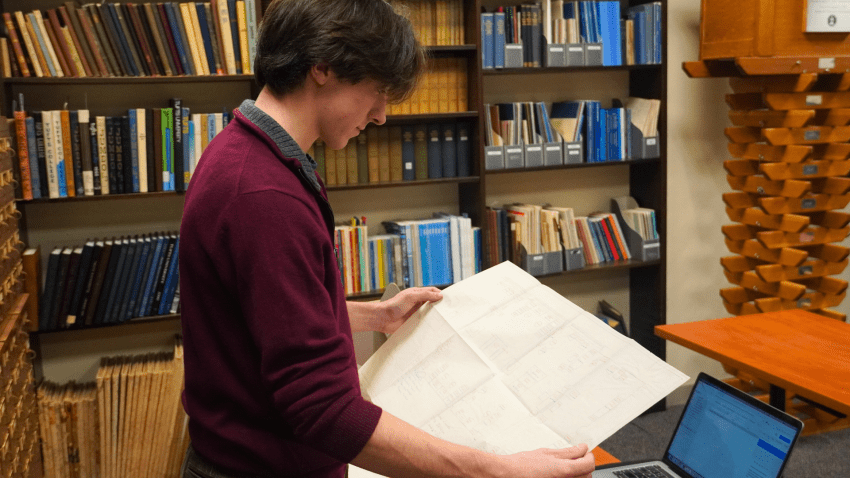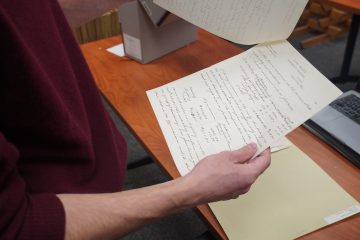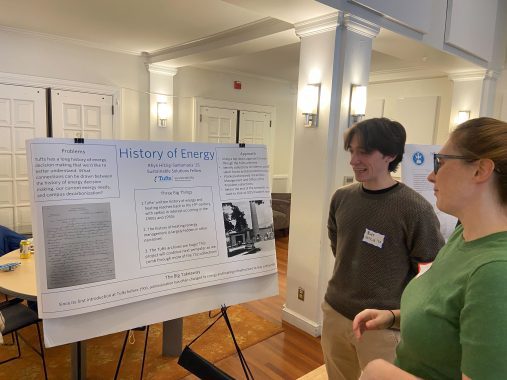Rhys Hitzig-Santamaria Explores Tufts Archives for Evidence of Carbon Reduction
Tuesday, December, 17th, 2024 Decarbonization News Student Programming

Rhys Hitzig-Santamaria examines archival material in the Tufts Archival Research Center Reading Room
On July 20th, 1934, an assistant dean wrote a letter to the Tufts president at the time, John Cousens, advocating for the installation of a central heating system for Ballou Hall to replace the inefficient independent boilers. As a result, the building was retrofitted with a new-at-the-time mechanism that allowed heated air to be recycled instead of wasted. According to Rhys Hitzig-Santamaria, A25, there have been plenty of instances of Tufts community members advancing campus energy efficiency over the past 150 years.

As a Sustainable Solutions Fellow, Rhys has been working with Tufts Archival Research Center (TARC) to piece together a historic record of heating at Tufts to help guide future campus heating and cooling decisions that further reduce carbon emissions. By combing through letters between past Tufts presidents, employees, and students, Rhys has identified commonly shared goals of energy efficiency and cost-effectiveness throughout the years, which have led Tufts to make environmentally sustainable decisions even before terms like “climate change” and “carbon footprint” were coined.
According to Rhys, there are records of students playing a key role in advocating for sustainable practices since 1909. Tufts’ Miner Hall had faulty ventilation 115 years ago that failed to filter out smoke and smells emitted by gas lighting. Students successfully petitioned to remove this type of lighting and replace it with electric-powered lights to create a healthier campus. Today, Tufts continues this legacy of electrifying our campus, replacing fuel-powered boilers with electric heat pumps, to take advantage of renewable electricity and lower Tufts carbon emissions to reach net-zero carbon by 2050.
Aside from interpreting the occasional dramatic correspondence or scrawled cursive handwriting, Rhys values this experience as a historian. A history major, Rhys found that extensive access to primary sources of information at TARC widened his understanding of archival research beyond what secondary sources can provide. With only two months to research this topic, Rhys learned how to navigate and prioritize documents of high importance and work with multiple stakeholders including staff from TARC and the Office of Sustainability. With his senior thesis coming up this spring, Rhys feels more prepared to take on his biggest project yet.
